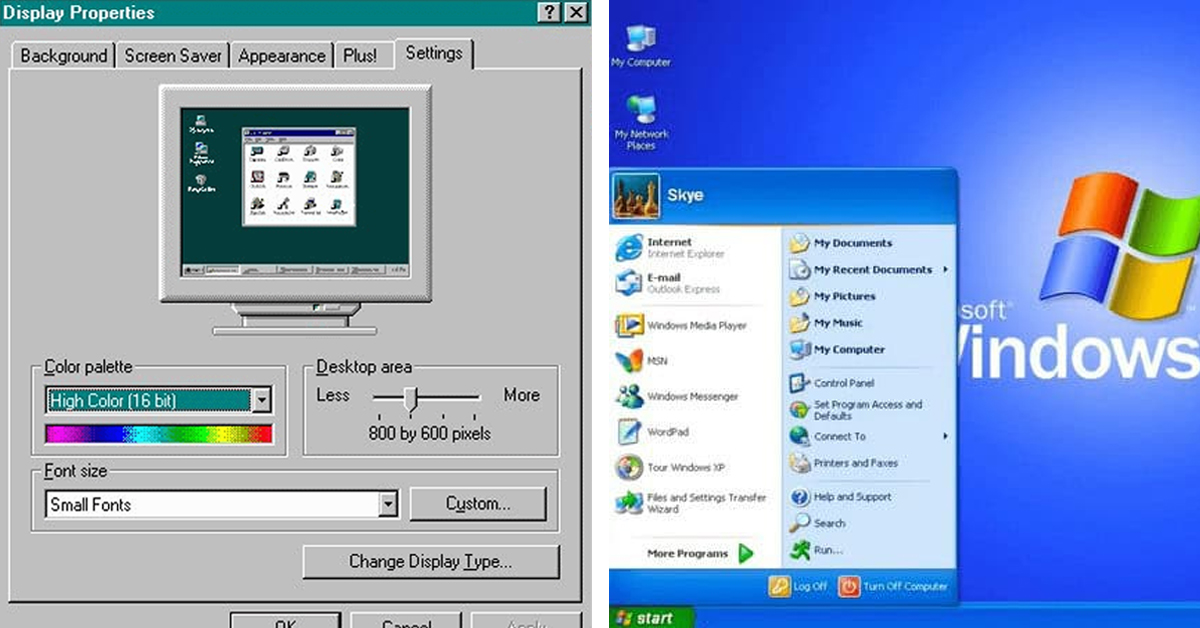
40 Of The Most Common Tourist Scams You Should Be Aware Of When Traveling
The only reason these scams might still work is because not enough people know about them

Tourists are very often unfamiliar with the area they’re visiting, its people and customs, and need guidance to get around. Luckily, most locals are friendly and willing to help. But there are those whose smile and friendliness is just a mask, and their real goal is taking advantage of tourists and taking their money or belongings.
These scammers are specialized in tourist frauds, and they are smart. Their schemes are usually very complex and hard to see through. They’ve developed ways to stay undetected, and the victims realize they’ve been conned only after the scammers are long gone. They know their local laws very well and sometimes don’t go to jail even when caught.
To help tourists avoid these kinds of troubles while visiting other countries, a UK-based travel website shared an infographic with the most common tourist scams and locations where they most often occur.
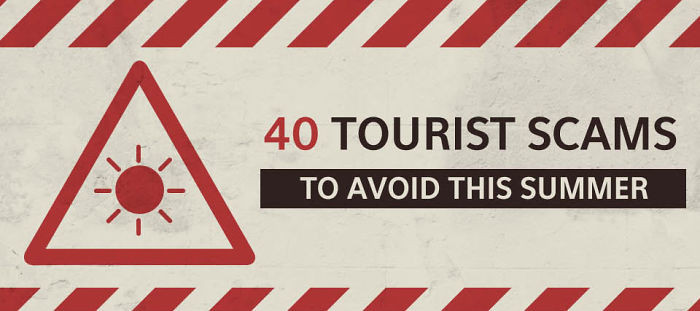 Just the Flight
Just the FlightThe rose
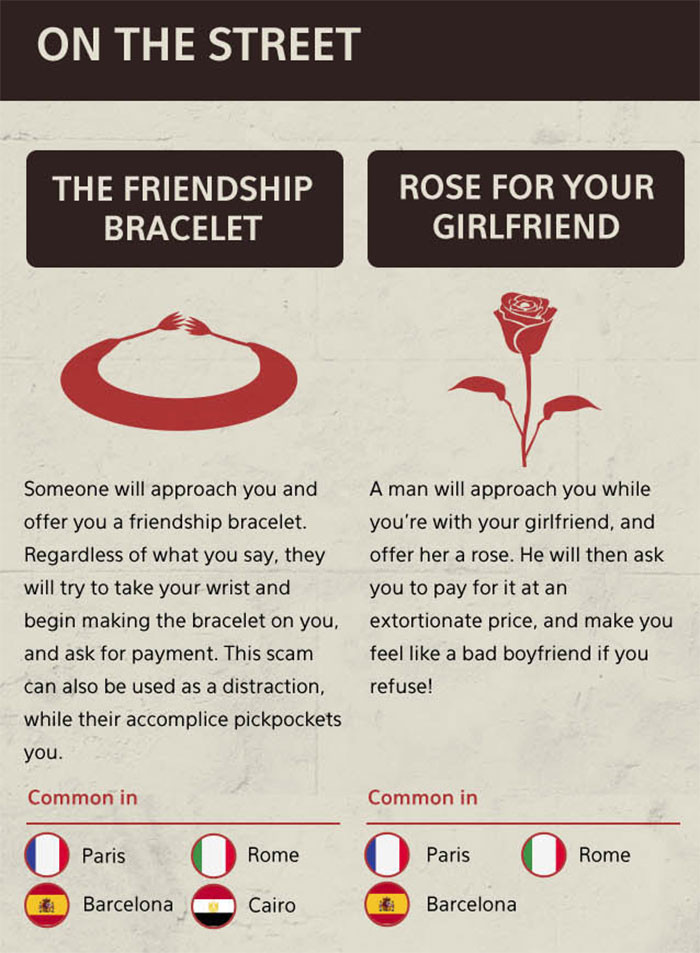 Just the Flight
Just the FlightThe ring
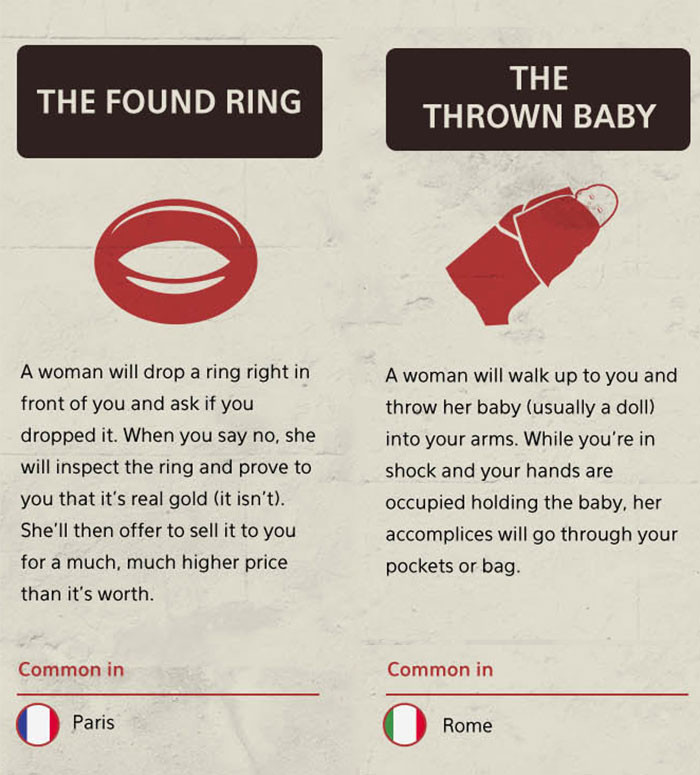 Just the Flight
Just the FlightGames
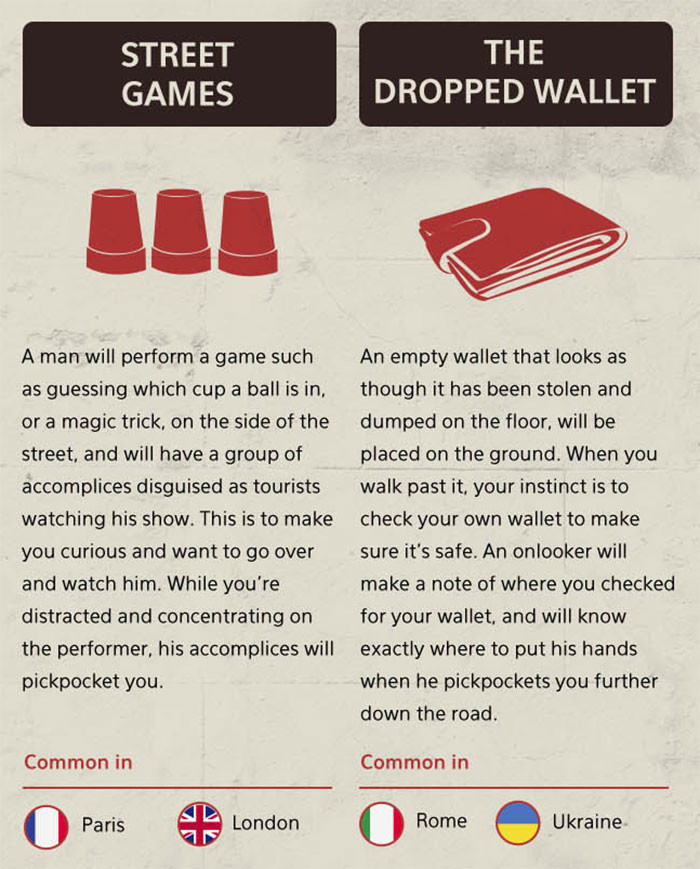 Just the Flight
Just the FlightThe shoe shiner
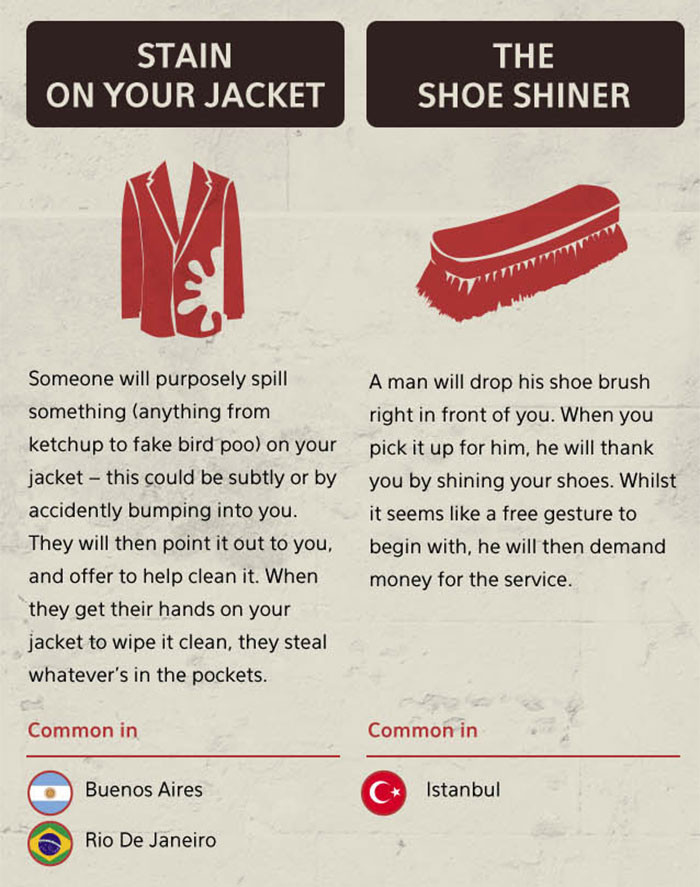 Just the Flight
Just the FlightThe photographer
 Just the Flight
Just the FlightThe music artist
 Just the Flight
Just the FlightTaxi and bus
 Just the Flight
Just the FlightDrop and swap
 Just the Flight
Just the FlightPickpockets
 Just the Flight
Just the FlightCashier
 Just the Flight
Just the FlightA great deal
 Just the Flight
Just the FlightFakes
 Just the Flight
Just the FlightMaps
 Just the Flight
Just the FlightFree massage
 Just the Flight
Just the Flight
Flirting
 Just the Flight
Just the Flight
Students
 Just the Flight
Just the Flight
The postcard
 Just the Flight
Just the Flight
Charity
 Just the Flight
Just the Flight
The closed hotel
 Just the Flight
Just the Flight
The room inspectors
 Just the Flight
Just the Flight
“Many of the most successful gambits require a naive and trusting tourist. But don’t think it can’t happen to more sophisticated travelers, too,” American traveler Rick Steves penned.
“There are many subtle ways to be scammed — a cabbie pads your fare, a shop clerk suddenly inflates prices, a public Internet terminal records your password, or a waiter offers a special with a ‘special’ increased price. Be smart: Know what you are paying for before handing over money, and always count your change.”
Just remember - If a bargain appears too good to be true, it is too good to be true.
Here’s what people had to say about this:





Damjan







